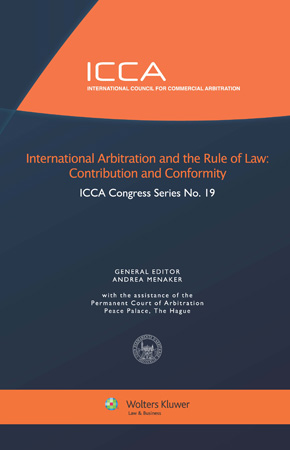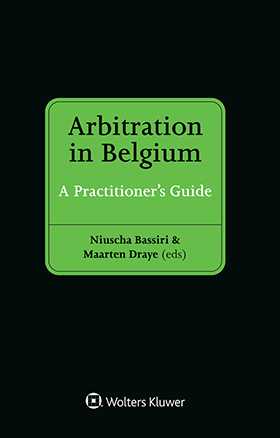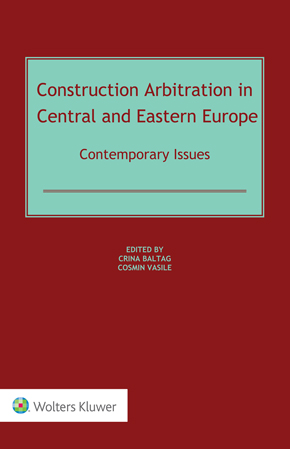Koki Yanagisawa and Takiko Kadono
Under the Japanese Arbitration Act, which was established based on the UNCITRAL Model Law on International Commercial Arbitration in 2003, parties may file a petition with a court requesting the court to set aside an arbitral award under certain circumstances. In such petition, parties frequently assert, among others, that “the terms of the arbitral award violated the public policy of Japan” under Article 44-1-8 of the Arbitration Act or that “the composition of the arbitral tribunal or arbitration proceeding violated Japanese laws and regulations” under Article 44-1-6 of the Arbitration Act, as grounds for setting aside the arbitral award.
Recently, the Tokyo High Court referred to the construction of Article 44-1-8 and Article 44-1-6 in a case where Company X (an appellant) filed a petition with a court in Japan, requesting the court to set aside an arbitral award that was rendered in accordance with the rules of the Japan Commercial Arbitration Association (JCAA) (Company X v Company Y, the Tokyo High Court, 2016 (RA) 497, August 19, 2016). In this case, the arbitral tribunal rendered an arbitral award ordering X to pay Company Y (an appellee) a certain amount of money for, among others, compensation for damage arising from X’s breach of its obligations under a distributor agreement between X and Y. X filed the aforementioned petition, asserting that (1) the arbitral tribunal’s construction of the distributor agreement violated the EU competition law and therefore violated the public policy of Japan and (2) the arbitral tribunal’s construction of the burden of proof was not justified under Japanese law, the governing law of the distributor agreement, and therefore the arbitration proceeding violated Japanese law. However, the Tokyo District Court rendered a decision dismissing X’s petition and, in response to the appeal against such decision filed by X, the Tokyo High Court rendered a decision affirming the decision of the Tokyo District Court.
Parties who received an unfavorable arbitral award tend to make an attempt to set aside such award based on the theory of “a breach of public policy” before the Japanese courts. It is also common for such parties to argue that the “arbitration proceeding was in breach of Japanese laws and regulations.” Over the past 15 years since the Arbitration Act came into force, Japanese courts have had opportunities to deal with the issue regarding to what extent the aforementioned grounds should be accepted in determining whether to set aside arbitral awards. Japanese arbitration practitioners have been closely monitoring the court’s construction on this issue since it would indicate to what extent arbitral awards could be set aside by Japanese courts, which would seriously affect the issue as to whether or not Japan is considered as an “arbitration-friendly” jurisdiction in the world.
We envisage that the Tokyo High Court decision reasonably affirmed the district court decision based on a view that not all breaches of a governing law or mandatory laws by an arbitral tribunal constitute “public policy” grounds for the court to set aside an arbitral award under the Arbitration Act. More specifically, the Tokyo High Court took a position that the EU competition law should not constitute the public policy of Japan and the arbitral tribunal’s mere misconstruction of a distributor agreement in violation of mandatory laws would not necessarily constitute a breach of the public policy of Japan under Article 44-1-8 of the Arbitration Act.
Furthermore, we believe it is important for the court to reasonably limit the scope of “issues concerning arbitration proceeding” in order to avoid the situation where parties can readily make an attempt to expand the scope of such issues to make it easier to set aside arbitral awards based on the ground that the arbitration proceeding violated Japanese laws and regulations under Article 44-1-6 of the Arbitration Act. In the present case, while it was discussed by the parties whether or not the construction of the burden of proof is an issue of arbitration proceeding, the Tokyo High Court reasonably concluded that it is a matter of substantive law and therefore the arbitral tribunal’s misconstruction of the burden of proof does not mean that the arbitration proceeding violated Japanese laws.
In Japan, the number of petitions to set aside arbitral awards filed with the court is relatively small and even a single court decision on this issue would significantly affect the construction of the Arbitration Act and arbitration practice in Japan. From that perspective, the Tokyo High Court decision in the present case has made a meaningful contribution in solidifying a reasonable construction of the definition of “public policy” as well as the scope of the “issues concerning arbitration proceeding” in relation to the grounds for setting aside arbitral awards under the Arbitration Act and thereby establishing sophisticated arbitration practice in Japan. We firmly believe that a series of such decisions rendered by Japanese courts will further consolidate Japan’s position as an arbitration-friendly jurisdiction and is expected to attract global business entities to select Japan as the situs of arbitration in arbitration agreements in their international business transactions.
More from our authors:

|
International Arbitration and the Rule of Law by Andrea Menaker € 240 |
The post Setting Aside Arbitral Awards before Japanese Court: Consolidating Japan’s Position as an Arbitration-Friendly Jurisdiction? appeared first on Kluwer Arbitration Blog.










